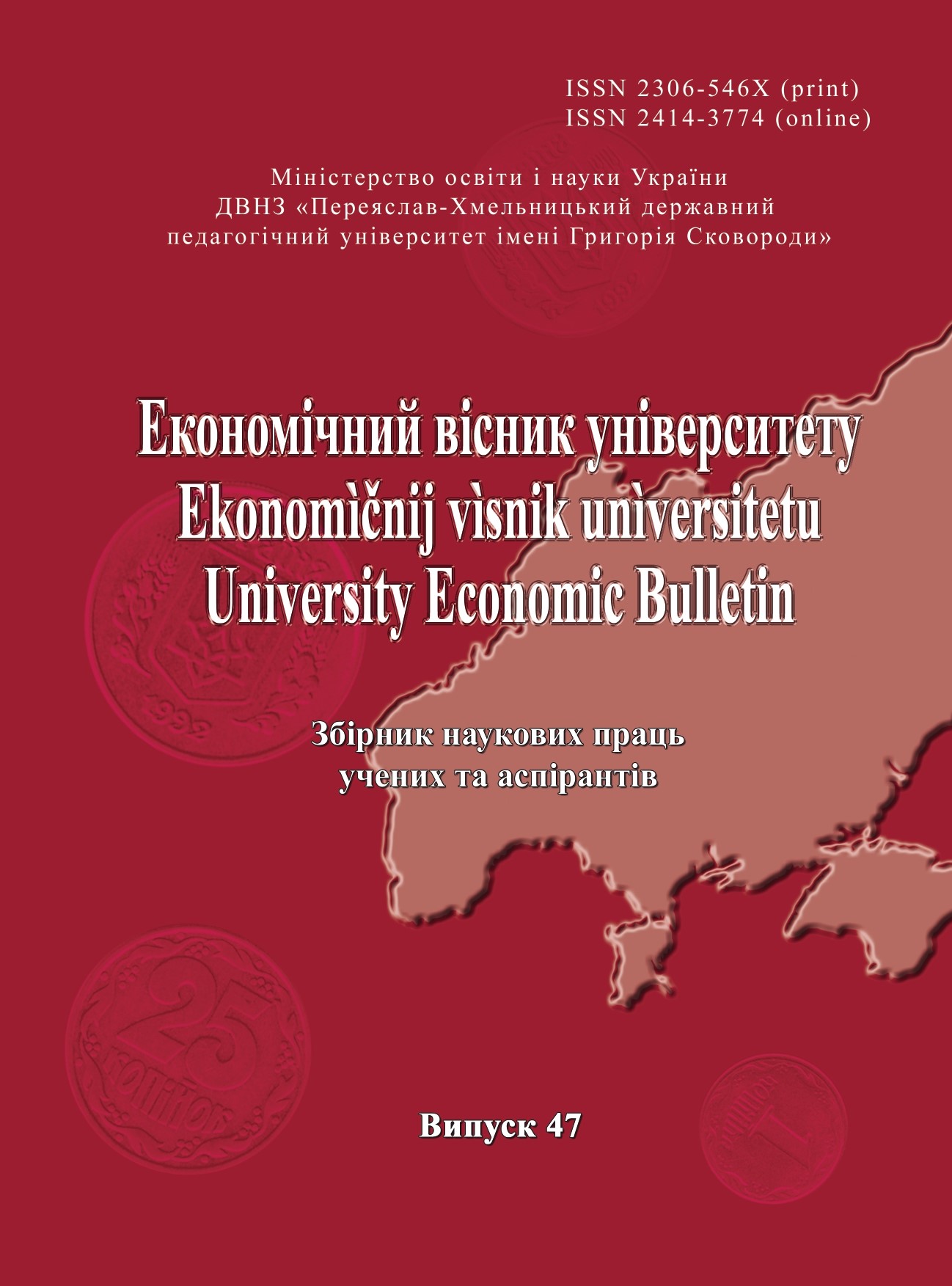Організаційні та методичні засади здійснення й удосконалення внутрішньогосподарського контролю розрахунків з дебіторами за нетоварними операціями
Organizational and methodological basis of implementation and improvement of internal economic control of accounts receivable for non-commodity transactions
Author(s): Mikhail Kotsupatryi, Kateryna Pylypenko, Mykola KucherenkoSubject(s): Business Economy / Management, Accounting - Business Administration
Published by: Університет Григорія Сковороди в Переяславі
Keywords: internal economic control; control of accounts receivable; non-commodity transactions; inventory;
Summary/Abstract: The subject of the study is the organizational and methodological aspects of accounting and internal economic control of accounts receivable for non-commodity transactions. The purpose of the article is to improve them regarding to the internal economic control. The results of the study are in establishing the features of accounts receivable for non-commodity transactions and their accounting. This allowed us to identify the main problems, functions, directions and tasks of their internal economic control. The main measures for its improvement at the organizational (comprehensive audits) and methodological level (based on factual and documentary inspections) with the involvement of property survey boards and auditing commissions are proposed. The content of stages and sections of control inspections final report is developed. Field of application of the results: enterprises, educational institutions training the specialists in accounting and taxation, analysis, control. Conclusions. The effectiveness of the final stage – the stage of generalization and implementation of control results – should ensure the analytical character of control data set in the previous stage. It means, first of all, the distribution of deviations of production costs by reasons of their occurrence, grouping and coding of irregularities detected by their scale and impact on the economic process, the systematic connection of deviations of production costs with the centres responsible for irregularities, reference to the document containing investigative and legal substantiation of the specific performers guilt. This approach allows the enterprises management to eliminate the irregularities effective and timely and to prevent them in the future.
Journal: Економічний вісник університету
- Issue Year: 2020
- Issue No: 47
- Page Range: 75-81
- Page Count: 7
- Language: Ukrainian

